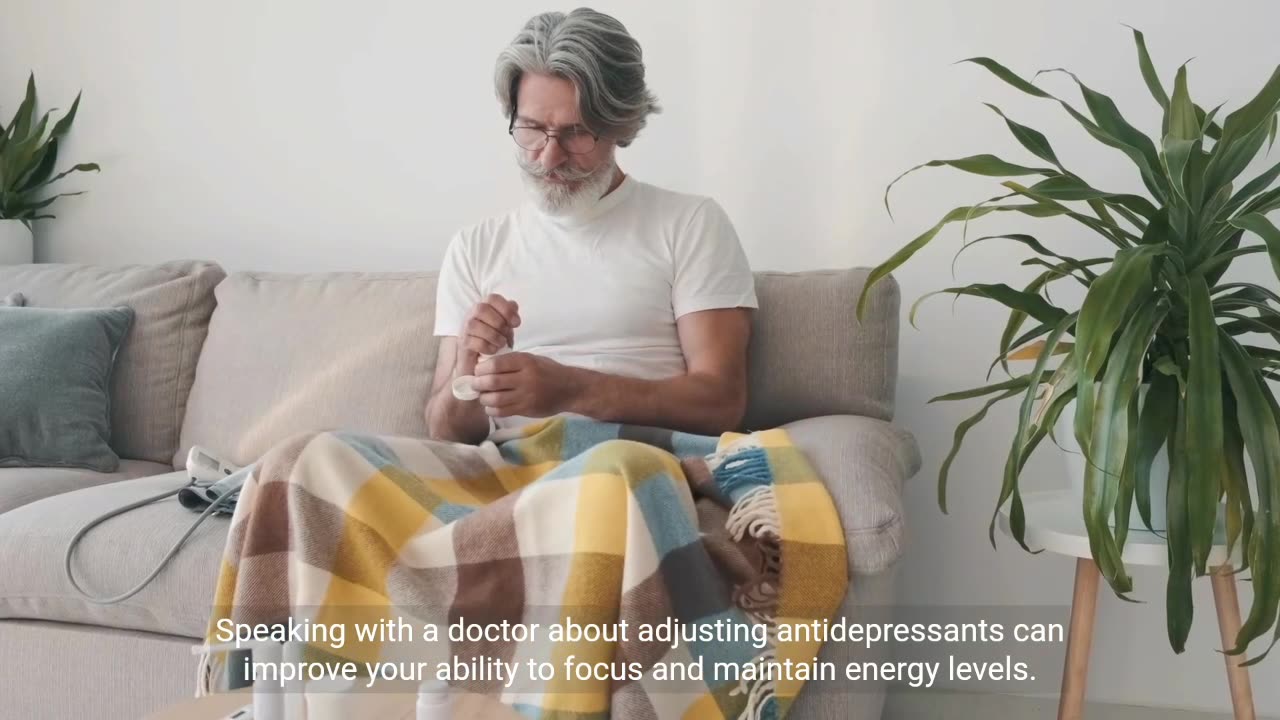Premium Only Content

5 Ways To Stay Productive If Your Depression Is Getting In The way
Some depressed individuals may experience symptoms like exhaustion and a lack of drive that make even seemingly straightforward chores seem impossible.
Here's why using techniques like getting enough sunlight during the day, asking your doctor to change the scheduling of your antidepressants, and making a list of the things you need to have in stock at home can help you stay productive and get things done.
In the entire world, depression is the main factor in disability. Depending on how severe a person's depression is, it can drastically impair their capacity to carry out even seemingly simple chores at home and at work.
According to Rebecca Brendel, MD, an associate professor of psychiatry at Harvard Medical School in Boston and the immediate past president of the American Psychiatric Association, "There are a number of various reasons why it's difficult for many people with depression to get things done." "So many of them have to do with the actual physical and mental signs of depression.
Elspeth Ritchie, MD, the chair of psychiatry at MedStar Washington Hospital Centre in Washington, DC, notes that in addition to having a depressed or melancholy attitude, depression frequently comes with symptoms including trouble falling asleep, oversleeping, exhaustion, or a lack of ambition.
Having coping mechanisms if your depression is interfering with your ability to be productive is advised. You can accomplish your goals by using these five tactics.
1. Divide tasks into manageable portions.
The likelihood that you will complete difficult tasks increases when you work with a therapist to develop coping mechanisms, according to Ritchie. One such tactic is to divide a major task into several smaller ones. If you are working on a project that seems overwhelming, think about dividing it up into smaller, more doable chores that you can finish over the week.
2. Discuss changing your medication with your doctor.
Ritchie advises speaking with your doctor about whether you might try taking the medication closer to bedtime so that you're more likely to feel awake during the day when you're at work if you take your antidepressant in the morning and discover that you get drowsy throughout the day.
If it doesn't work, ask your doctor to change your antidepressant's dosage or prescribe you one that might not make you feel as exhausted.
3. Request support from family and friends
Asking for and accepting help is crucial for those who are depressed because it gives you the motivation you need to complete your chores and enjoy life while also giving you access to basic requirements support. Choose a friend or family member you can call on for assistance with chores like cooking, cleaning, or running errands.
4. Gain an advantage When Practical.
Consider getting a head start on something you know might be challenging if the prospect of starting is tough for you. Make some of the required preparations in advance so that you are prepared when a task needs to be completed.
The night before, plan out your day and prepare as much as you can. Do you need dry cleaning for your garments this weekend? As soon as you remember, put them in a bag near the door so you can collect them the next time you go outside.
5. Benefit from the Sun's Energy
There is proof that exposure to natural sunlight can be energising and mood-boosting for everyone, even those who suffer from depression, especially in the winter when there are less daylight hours. When you know you'll need it, try to take use of the sun's vitality, whether it helps you get motivated to get out first thing in the morning or if you need a boost during the day. If you live in a place with little natural sunlight, you might also consider utilising a light box, a gadget made to replicate sunlight. There is evidence that using light boxes can help persons with depression feel better.
-
 2:56:44
2:56:44
TimcastIRL
8 hours agoNBA Games RIGGED, 34 Indictments, Democrat Calls It TRUMP'S REVENGE | Timcast IRL
246K118 -
 2:54:13
2:54:13
Laura Loomer
7 hours agoEP152: Texas Man Arrested For Threatening To Kill Laura Loomer
38.9K29 -
 1:34:02
1:34:02
Man in America
11 hours agoEXPOSED: What the Vatican, CIA, & Elites Are HIDING About True Human Potential
60.5K30 -
 3:18:12
3:18:12
Barry Cunningham
8 hours agoJOIN US FOR MOVIE NIGHT! TONIGHT WE FEATURE THE MOVIE RFK LEGACY!
63.2K29 -
 1:13:42
1:13:42
Sarah Westall
8 hours agoHow Bitcoin was Hijacked, Palantir is a Deep State Upgrade & more w/ Aaron Day
43.5K9 -
 15:59
15:59
ArynneWexler
11 hours agoAll The Reasons You're Right to Fear Zohran Mamdani | NN6
26.5K7 -
 LIVE
LIVE
Side Scrollers Podcast
15 hours ago🔴FIRST EVER RUMBLE SUB-A-THON🔴DAY 4🔴BLABS VS STREET FIGHTER!
1,717 watching -
 2:52:41
2:52:41
DLDAfterDark
7 hours ago $6.64 earnedGlock's Decision - How Could It Impact The Industry?
34.7K5 -
 25:57
25:57
The Kevin Trudeau Show Limitless
1 day agoThe Sound Of Control: This Is How They Program You
50.9K12 -
 8:29
8:29
Colion Noir
17 hours agoThree Masked Idiots Show Up at Her Door — Here’s What Happened Next
55.8K34